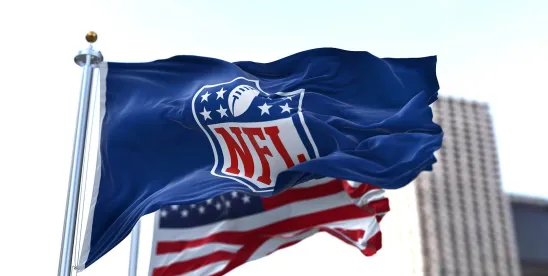Happy Monday TCPAWorld!! With football season in full swing, we bring you a legal case that’s sure to catch your attention: Brandon Hughes vs. the National Football League (NFL), filed in the Southern District of New York. This case has all the drama of a Sunday night football game. So, let’s huddle up and break it down!
Plaintiff is suing the NFL under the Video Privacy Protection Act (VPPA) claiming that his personal viewing information was shared without his consent. The NFL filed 12(b)(1) and 12(b)(6) motions to dismiss the case under Federal Rule of Civil Procedure. For those who aren’t fluent in legal jargon, 12(b)(1) challenges the plaintiff’s standing to sue, and 12(b)(6) argues that the complaint fails to state a valid claim.
Hughes claims that as a digital subscriber to NFL.com for four years, his viewing data was shared with Facebook without his express consent. Signing up for NFL.com, NFL App, and a digital subscription service called NFL+ involves providing personal data like IP addresses, physical location, and other identifying information. So, every time you check the latest game stats or watch a highlight reel, your data is at play. Hughes argues that the NFL’s sharing of information, such as viewing habits tied to user IDs and URLs, was done without him ever knowingly signing off on it.
It’s worth noting that the defendant requested a stay in the proceedings, pointing to a similar case involving the NBA. The court, however, wasn’t impressed with the NFL’s delay tactics and ruled against it, noting that the public interest demanded a swift resolution.
The NFL tackled the standing issue, arguing that Hughes lacked the right to bring the suit under the VPPA. However, the Court decided that Hughes had made enough of a case for standing, even if the consent issues were murky.
But when it came to whether Hughes actually had a valid claim under the VPPA, the Court ruled in favor of the NFL. The VPPA defines a “consumer” as someone who is a renter, purchaser, or subscriber of goods or services from a videotape service provider. Under the VPPA, a videotape service provider is defined as any person engaged in the business of delivering pre-recorded video… And, Plaintiff conceded that the VPPA applies to prerecorded content only.
Here’s where it gets interesting.
Plaintiff asserts that he qualifies as a subscriber and thus a consumer because of his subscription to NFL+. He contends that as part of his subscription he received access to content and features only available to NFL+ subscribers and further claims that he watched videos through the NFL App which were exclusive to subscribers. Makes sense, right? Not so.
The NFL scored a victory by arguing that Plaintiff is not a consumer of a “video tape service provider” because he did not allege he viewed any prerecorded video content through his subscription. So, the Court found that while Hughes is indeed a subscriber to NFL+, he didn’t sufficiently plead that he had viewed any of the pre-recorded videos available on the service.
NFL 1 ; Plaintiff 0.
The court’s ruling essentially says, “Even if you sign up for NFL+, that doesn’t automatically make you a ‘consumer’ under the VPPA unless you can prove you actually viewed pre-recorded content.”
This case is a prime example of how privacy laws are playing catch-up with modern digital realities. While New York doesn’t yet have a specific data privacy law, issues like geolocation tracking and targeted advertising are already on the field in other legal contexts.
The NFL may have won this round, but data privacy is becoming a bigger player in the legal landscape. Remember, knowing the playbook on data privacy could save you from unnecessary penalties. Just like in football, it’s all about staying ahead of the game—whether it’s in the end zone or the courtroom!




 />i
/>i

